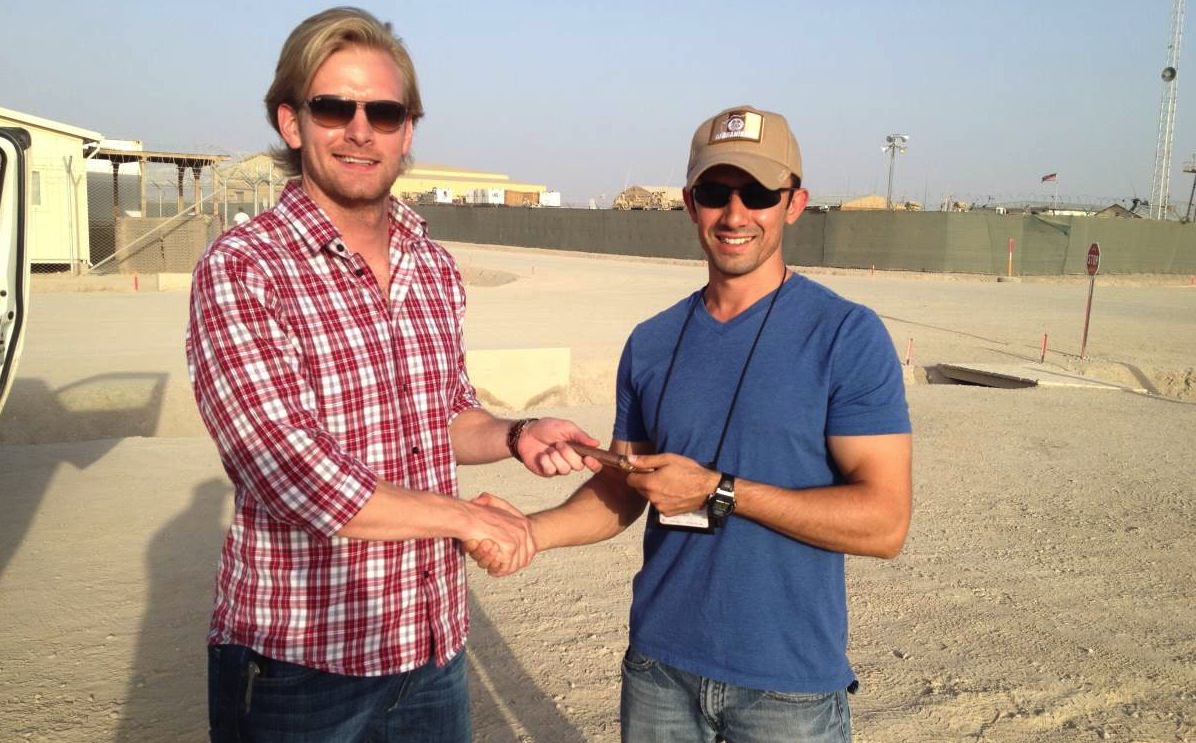
Afghanistan's first recorded bitcoin transaction?
The sun beat down at a blistering 120 degrees in the Helmand desert. The air was dry and tense as the two bitcoin entrepreneurs, Adam Locklin and yours truly, shook hands and made a deal in bitcoin.
A Partagas robusto cigar traded hands, I sent Adam 0.1 BTC, and so concluded what we believe to be Afghanistan’s first recorded bitcoin transaction.
This simple trade comes with a few lessons if bitcoin is really going to work in Afghanistan and other remote parts of the developing world:
Most countries need an exchange
Adam and I were talking to a few local Afghans the other day, and despite their enthusiasm for the new currency, it dawned on me that they had no practical way of obtaining bitcoin. I could personally take Afghanis, or US dollars, and send over the equivalent BTC, but that didn’t seem like a big enough solution to a huge problem.
Afghanistan needs a local presence, whether it be bitcoin dealers in a modified Hawala concept, ATM’s in fixed locations, or Internet exchanges. The local dealer concept could catch on, given the region’s history with informal, trusted, peer-to-peer cash dealing. Most Afghans don’t have regular web access, and make use of public Internet cafes, so I don’t see exchanges like Mt. Gox, or Coinbase, working for the average Afghan just yet. Give it a ceasefire and a decade, and maybe things will change.
Once Afghans have bitcoin they need an easy way to spend it
I have the Blockchain app on my fancy iPhone, while Adam has a practical Roshan phone that works in Afghanistan. The two devices won’t talk to each other, so we still ended up doing a bitcoin-qt wallet computer transaction.
An African company, Kipochi, just released a bitcoin wallet that piggybacks on the popular M-Pesa cellular system already used by over 10 million people in both Africa and India. M-Pesa has already taken the first steps in integrating with the dominant cellular carrier in Afghanistan, Roshan, so it’s just a matter of time before a service like Kipochi hits the market.
When the average Afghan can easily access a bitcoin wallet over a cellular network, the rate of local adoption in this part of the world will accelerate significantly. Include a familiar method of trading Afghanis, or dollars, for BTC, and this could really take off.
Rob Viglione is a physicist turned economic consultant currently living as an expat in Afghanistan. He has earned an MBA in Finance & Marketing, the PMP certification, and is Founder and adviser to several tech start-ups around the world.
DISCLOSURE
The leader in news and information on cryptocurrency, digital assets and the future of money, CoinDesk is a media outlet that strives for the highest journalistic standards and abides by a strict set of editorial policies. CoinDesk is an independent operating subsidiary of Digital Currency Group, which invests in cryptocurrencies and blockchain startups. As part of their compensation, certain CoinDesk employees, including editorial employees, may receive exposure to DCG equity in the form of stock appreciation rights, which vest over a multi-year period. CoinDesk journalists are not allowed to purchase stock outright in DCG.


